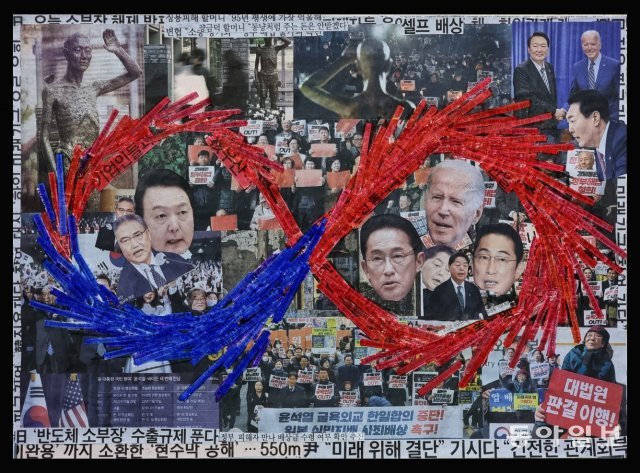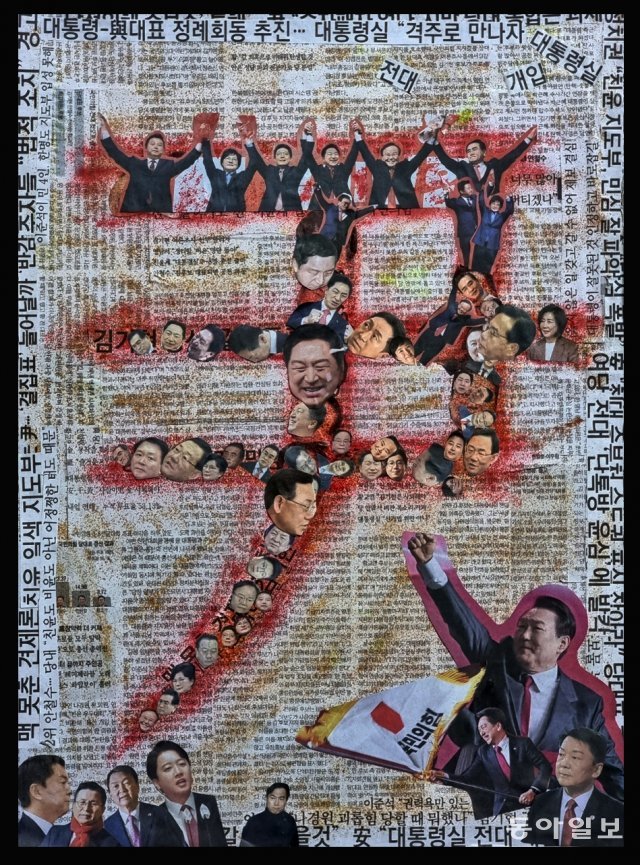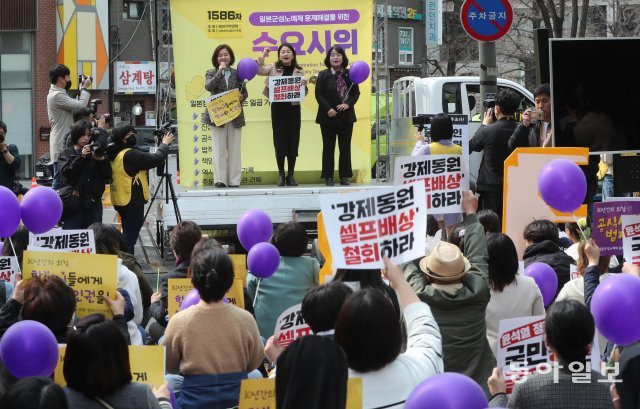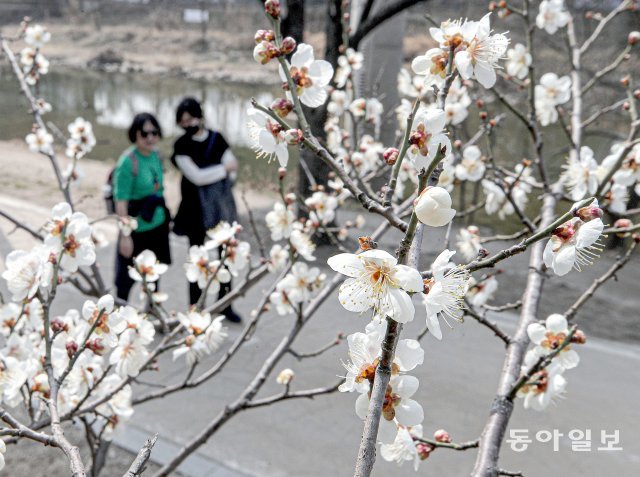March 2nd week tidy up
Chinese President Xi Jinping was unanimously elected with 2,952 votes out of 2,952 at the plenary session of the National People’s Congress held at the Great Hall of the People in Beijing on the 10th. In 2018, President Xi was unanimously elected to the National People’s Congress, and in the 2013 vote for the first time as the National People’s Congress, he recorded 99.86% of the vote with 2952 votes in favor, 1 vote against, and 3 abstentions. On this day, voting was conducted in such a way that representatives marked their disapproval and abstention with a pen on the ballot paper at their seats (yes do not need to be filled in), and there was no separate voting booth. In the end, it was a structure in which unanimity was bound to come out as opposition or abstention was clearly revealed the moment the pen was moved from the seat. President Xi, who deleted the three consecutive terms limit through constitutional amendment in 2018, became the first beneficiary of the changed law.
![Chinese President Xi Jinping applauds after being unanimously elected president through a vote at the 3rd plenary session of the 1st session of the 14th National People's Congress held at the Great Hall of the People in Beijing on the 10th. [베이징=신화/뉴시스]](https://dimg.donga.com/wps/NEWS/IMAGE/2023/03/12/118285528.1.jpg) Chinese President Xi Jinping applauds after being unanimously elected president through a vote at the 3rd plenary session of the 1st session of the 14th National People’s Congress held at the Great Hall of the People in Beijing on the 10th. [베이징=신화/뉴시스]
Chinese President Xi Jinping applauds after being unanimously elected president through a vote at the 3rd plenary session of the 1st session of the 14th National People’s Congress held at the Great Hall of the People in Beijing on the 10th. [베이징=신화/뉴시스]
Regarding the South Korean government’s announcement of a solution to the forced labor issue during the Japanese colonial period on the 6th, the US State Department said, “President Seok-Yeol Yoon and Japanese Prime Minister Fumio Kishida showed courageous leadership and a bold vision. The trilateral relationship between Korea, the U.S. and Japan is very important to the Indo-Pacific vision beyond North Korea,” he said. There is also an opinion that South Korea should be invited to the ‘Quad’ (a four-party consultative body of the United States, Japan, Australia, and India) for cooperation to contain China, and a trilateral meeting body for Korea, the United States, and Japan should be established to deter North Korean nuclear expansion.
![Yang Geum-deok (93), a victim of forced labor during the Japanese colonial rule, participated in a press conference for the Citizens' Gathering for Forced Mobilization by Japan and Gwangju Jeonnam Historical Justice and Peace Action held at the May 18th Democracy Square in Dong-gu, Gwangju on the 6th. It is criticizing the related solution, the 'third party subrogation proposal'. [광주=뉴시스]](https://dimg.donga.com/wps/NEWS/IMAGE/2023/03/12/118285534.1.jpg) Yang Geum-deok (93), a victim of forced labor during the Japanese colonial rule, participated in a press conference for the Citizens’ Gathering for Forced Mobilization by Japan and Gwangju Jeonnam Historical Justice and Peace Action held at the May 18th Democracy Square in Dong-gu, Gwangju on the 6th. It is criticizing the related solution, the ‘third party subrogation proposal’. [광주=뉴시스]
Yang Geum-deok (93), a victim of forced labor during the Japanese colonial rule, participated in a press conference for the Citizens’ Gathering for Forced Mobilization by Japan and Gwangju Jeonnam Historical Justice and Peace Action held at the May 18th Democracy Square in Dong-gu, Gwangju on the 6th. It is criticizing the related solution, the ‘third party subrogation proposal’. [광주=뉴시스]Yang Geum-deok (92), a victim of forced labor at Mitsubishi Heavy Industries, watched the government’s announcement live on the morning of the 6th at the office of the Citizens’ Group for Forced Mobilization by Japan in Seo-gu, Gwangju. I don’t need that kind of money even if I starve to death,” she raised her voice. Her step-grandmother sued Mitsubishi Heavy Industries for damages, which the Supreme Court won in 2018.
![Japanese Prime Minister Fumio Kishida throws the first pitch during the World Baseball Classic (WBC) 2023 Group B match between Japan and Korea held at Tokyo Dome on the 10th. [도쿄=뉴시스]](https://dimg.donga.com/wps/NEWS/IMAGE/2023/03/12/118285537.1.jpg) Japanese Prime Minister Fumio Kishida throws the first pitch during the World Baseball Classic (WBC) 2023 Group B match between Japan and Korea held at Tokyo Dome on the 10th. [도쿄=뉴시스]
Japanese Prime Minister Fumio Kishida throws the first pitch during the World Baseball Classic (WBC) 2023 Group B match between Japan and Korea held at Tokyo Dome on the 10th. [도쿄=뉴시스]President Yoon is known to be accompanied by the heads of 10 major conglomerates, including Samsung Electronics Chairman Lee Jae-yong, SK Group Chairman Chey Tae-won, Hyundai Motor Group Chairman Chung Eui-sun, and LG CEO Koo Kwang-mo, on a visit to Japan on the 16th and 17th. It is interpreted as a signal that the normalization of economic cooperation between Korea and Japan will begin in earnest after the announcement of the solution to victims of forced labor during the Japanese colonial period. Shuttle diplomacy (regular summit meetings going back and forth to and from the other country), which has been suspended for 12 years, is also more likely to go through the process of restoration. It is known that President Yoon settled the issue of compensation for victims of forced labor despite criticism from some, considering that the United States and economic issues are piled up. As President Joe Biden has been emphasizing Korea-US-Japan cooperation and improving Korea-Japan relations for this, the US Inflation Reduction Act (IRA) and semiconductor bills that are unfavorable to Korea have begun to demand from the United States. An official from the presidential office said, “Improving Korea-Japan relations is actually a message to the United States.”
 The ROK and US Air Force pilots who participated in the first pairing training of the year, which will be held from March 6 (Mon) to March 10 (Fri), finished training on the morning of March 8 (Wed) and saw US Air Force A-10 attack aircraft in the background. We are walking while sharing our opinions on training. Provided by the Air Force
The ROK and US Air Force pilots who participated in the first pairing training of the year, which will be held from March 6 (Mon) to March 10 (Fri), finished training on the morning of March 8 (Wed) and saw US Air Force A-10 attack aircraft in the background. We are walking while sharing our opinions on training. Provided by the Air ForceOn the 26th of next month, President Yoon Seok-yeol will visit the United States in the form of a’state visit’ to celebrate the 70th anniversary of the ROK-US alliance, holding a summit meeting and a state dinner with US President Joe Biden. It is the first state visit by a Korean leader in 12 years, following then-President Lee Myung-bak’s visit in October 2011. Considering the Korea-US-Japan summit in May, which is expected to be held as an opportunity for the G7 summit, the possibility of a series of summits in Korea-Japan in March, Korea-US in April, and Korea-US-Japan in May has increased.

– Despite controversy over previous generation involvement, the ruling party leadership’s family system, ‘pro-Yun criticism’ 安-千, failed in the final vote
The power of the people held a party convention at KINTEX, Goyang, Gyeonggi Province on the 8th. It was held with 100% of the party member vote without a general public opinion poll, and the new representative Kim Ki-hyun (64) of the fourth term, who recorded a vote rate of 52.93%, confirmed the victory without a runoff vote. (1st place Kim Ki-hyun 52.93%, 2nd place Ahn Cheol-soo 23.37%)
In the course of the party convention, controversy over ‘pro-Yun (Pro-Yun Seok-yeol) hegemonism’ occurred, but the 460,000 party members who participated in the vote are evaluated as having chosen the stability of the ruling party. Four members of the Supreme Council and one member of the Youth Council were all pro-Yun factions. Former lawmaker Kim Jae-won (17.55%), Kim Byung-min, chairman of the Seoul Party Committee Gwang Jin-gap (16.10%), lawmaker Jo Soo-jin (13.18%), and lawmaker Tae Young-ho (13.11%) were elected. The chairman of the Youth Foundation was elected. All candidates supported by former CEO Lee Jun-seok, who had a confrontation with the pro-Yun camp, were defeated. Chairman Chun, who challenged the party representative, and Rep. Eun-ah Huh and former Supreme Council member Kim Yong-tae, who jumped into the election for the supreme council, failed to enter the leadership.
![Rep. Kim Ki-hyun, who was elected as the People’s Power Party representative, shakes hands with Rep. Ahn Chul-soo at the 3rd party convention held at KINTEX, Goyang-si, Gyeonggi-do on the 8th. [고양=사진공동취재 [Exclusive]]](https://dimg.donga.com/wps/NEWS/IMAGE/2023/03/12/118285543.1.jpg) Rep. Kim Ki-hyun, who was elected as the People’s Power Party representative, shakes hands with Rep. Ahn Chul-soo at the 3rd party convention held at KINTEX, Goyang-si, Gyeonggi-do on the 8th. [고양=사진공동취재 [Exclusive]]
Rep. Kim Ki-hyun, who was elected as the People’s Power Party representative, shakes hands with Rep. Ahn Chul-soo at the 3rd party convention held at KINTEX, Goyang-si, Gyeonggi-do on the 8th. [고양=사진공동취재 [Exclusive]]![On the afternoon of the 10th, Democratic Party leader Lee Jae-myeong pays condolences at the funeral hall of Seongnam Medical Center in Sujeong-gu, Seongnam-si, Gyeonggi-do, and is moving after paying condolences to his aide Jeon Mo, who served as the first chief of staff when he was governor of Gyeonggi-do. [성남=뉴스1]](https://dimg.donga.com/wps/NEWS/IMAGE/2023/03/12/118285545.1.jpg) On the afternoon of the 10th, Democratic Party leader Lee Jae-myeong pays condolences at the funeral hall of Seongnam Medical Center in Sujeong-gu, Seongnam-si, Gyeonggi-do, and is moving after paying condolences to his aide Jeon Mo, who served as the first chief of staff when he was governor of Gyeonggi-do. [성남=뉴스1]
On the afternoon of the 10th, Democratic Party leader Lee Jae-myeong pays condolences at the funeral hall of Seongnam Medical Center in Sujeong-gu, Seongnam-si, Gyeonggi-do, and is moving after paying condolences to his aide Jeon Mo, who served as the first chief of staff when he was governor of Gyeonggi-do. [성남=뉴스1] On the 8th, Rep. Mi-Hyang Yoon attended the 1,586th Wednesday rally hosted by the Justice and Memory Solidarity and the University Student History Club Association. She even received greetings and flowers from her supporters.
On the 8th, Rep. Mi-Hyang Yoon attended the 1,586th Wednesday rally hosted by the Justice and Memory Solidarity and the University Student History Club Association. She even received greetings and flowers from her supporters.  At the excavation site of Woldae and its surroundings in Gwanghwamun, tram tracks installed during the Japanese colonial era were discovered, and the Seoul Metropolitan Government and the Cultural Heritage Administration announced that they would open them to the public for three days from the 16th. The tramway existed from 1917 to 1966 and meets in the shape of a ‘Y’ on the east and west sides of Woldae in Gwanghwamun and connects to Sejong-ro. The picture is a panoramic view of the train tracks. Provided by Seoul Metropolitan Government
At the excavation site of Woldae and its surroundings in Gwanghwamun, tram tracks installed during the Japanese colonial era were discovered, and the Seoul Metropolitan Government and the Cultural Heritage Administration announced that they would open them to the public for three days from the 16th. The tramway existed from 1917 to 1966 and meets in the shape of a ‘Y’ on the east and west sides of Woldae in Gwanghwamun and connects to Sejong-ro. The picture is a panoramic view of the train tracks. Provided by Seoul Metropolitan Government![On the 9th, at the National Youth Agricultural Life Center in Gimje-si, Jeonbuk, where the funeral ceremony for the late Seonong-il firefighter who died while rescuing people at the fire site was held, a fellow firefighter is entering the hall holding a picture of the portrait. [김제=뉴스1]](https://dimg.donga.com/wps/NEWS/IMAGE/2023/03/12/118285557.1.jpg) On the 9th, at the National Youth Agricultural Life Center in Gimje-si, Jeonbuk, where the funeral ceremony for the late Seonong-il firefighter who died while rescuing people at the fire site was held, a fellow firefighter is entering the hall holding a picture of the portrait. [김제=뉴스1]
On the 9th, at the National Youth Agricultural Life Center in Gimje-si, Jeonbuk, where the funeral ceremony for the late Seonong-il firefighter who died while rescuing people at the fire site was held, a fellow firefighter is entering the hall holding a picture of the portrait. [김제=뉴스1] Plum blossoms bloom near Cheonggyecheon in Seongdong-gu, Seoul on the afternoon of the 7th, showing rampant spring weather.
Plum blossoms bloom near Cheonggyecheon in Seongdong-gu, Seoul on the afternoon of the 7th, showing rampant spring weather. Source: Donga
Mark Jones is a world traveler and journalist for News Rebeat. With a curious mind and a love of adventure, Mark brings a unique perspective to the latest global events and provides in-depth and thought-provoking coverage of the world at large.